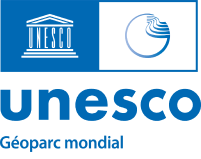Launched in 2010 by the Ministry of the Environment and later entrusted to the French Office for Biodiversity (OFB), the “ABC” program, which stands for Atlas of Communal Biodiversity, is a tool for understanding, preserving, and promoting natural heritage at the municipal level.
The ABC has a threefold purpose. First, it enables the acquisition of biodiversity knowledge and the identification of related challenges. Second, it supports informed decision-making in development projects and/or the drafting of urban planning documents. Lastly, it raises awareness among local stakeholders (residents, elected officials, foresters, farmers, students, etc.) about biodiversity issues to encourage greater daily involvement.
A territorial initiative
The ABC Haute Sarthe Alpes Mancelles brings together five municipalities within the Haute Sarthe Alpes Mancelles intermunicipality:
Assé-le-Boisne, Moulins-le-Carbonnel, Saint-Léonard-des-Bois, Saint-Paul-le-Gaultier, Sougé-le-Ganelon.

With funding secured through autumn 2026, the project is made possible thanks to the financial support of the French Office for Biodiversity (80%), the Regional Nature and Geopark, and the participating municipalities.
The projet's structure
3 main pillars :
 PILLAR 1 – CONDUCTING NATURALIST INVENTORIES
PILLAR 1 – CONDUCTING NATURALIST INVENTORIES
Throughout the project’s duration, numerous naturalists (Park staff, volunteers, or association employees – and maybe even you!) will be roaming the municipalities to inventory local flora and fauna. You may spot people equipped with binoculars, butterfly nets, or cameras, searching for aquatic plants, lichens, birds, dragonflies, and more.
PILLAR 2 – ORGANIZING AWARNESS-RISING ACTIVITIES
From nature walks and workshops to lectures, all activities within the ABC framework are open to everyone, exploring biodiversity from multiple angles (fauna, flora, fungi) and intersecting with various other themes and art forms: cooking, film, photography… there’s something for everyone!
In parallel, specific programs will be implemented:
-
School Projects (2024–2026): Designed to raise awareness among younger generations – the citizens of tomorrow – about climate change and environmental health.
-
Citizen Project “Rewild Your Garden”: Residents will be invited to let a specific area of their lawn grow wild for two years, to observe the floral potential of these grassed spaces. A Park agent will visit during the summer to assess the evolution of these observation zones.
 Pillar 3 – MAPPING BIODIVERSITY ISSUES IN THE PARTICIPATING MUNICIPALITIES
Pillar 3 – MAPPING BIODIVERSITY ISSUES IN THE PARTICIPATING MUNICIPALITIES
Where exactly are the animal and plant species found? Are they spread throughout the territory or clustered in specific zones? What movement corridors do they use? Are any species protected? Do municipal infrastructures (roads, lighting systems, etc.) unintentionally impact biodiversity?
These are the key questions the project aims to answer through detailed mapping, which will be shared with municipal and intermunicipal authorities. The resulting data will help guide the creation or revision of planning documents (PLUi, landscape plans, etc.). Additionally, each municipality will develop its own action plan with local elected officials.
Two key themes and a dedicated governance structure
As part of the 2024–2039 renewal of its Charter, and in response to pressing global challenges like biodiversity loss and climate change, the ABC project will emphasize two cross-cutting priorities:
-
Climate Change
-
Environmental Health
The project is coordinated by the Park, but as a participatory initiative, it is overseen by a steering committee composed of local stakeholders. This committee will make decisions on upcoming actions, address local challenges, encourage the exchange of ideas between municipalities, and monitor progress. It will convene as needed throughout the project.
A shared language (and a shared resource)
ABC focuses on biodiversity – but do we all define this word the same way? To help clarify things in under 5 minutes and ensure a common understanding, check out this quick explainer:
The Basics:
Without biodiversity, there can be no life.
How can you get involved?
Biodiversity is everywhere. Whether you’re an experienced naturalist, a passionate beginner, or just curious, you can contribute to the ABC in several ways:
-
Share your wildlife and plant observations by email with Johannic Chevreau. Be sure to include the date, specific location, and a photo if possible. Even if you haven’t identified the species, we can help!
-
Join the participatory inventories and take part in the awareness-raising activities organized across the territory.
Would you like to raise awareness or introduce biodiversity topics to your association (sports club, PTA, book club…), your school, or even your workplace? Get in touch – we’d be happy to explore partnership opportunities with you.
Don’t know where to start?
We regularly invite you to search for new species through our “Wanted Posters” (Avis de recherche).
To receive a monthly highlight of the featured species, you can subscribe to our mailing list. By becoming a wildlife and plant observer and sharing your sightings, you’ll help enhance our collective understanding of the local biodiversity.



